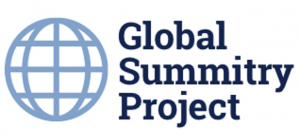
I have to start with the Biden press conference last night, of course. I wish Biden’s performance could allay concerns about his competence but, unfortunately, it was not good enough to do that. Biden was certainly less combative than what was on display earlier but the stubbornness has not abated. And the mistakes remain. So, the Democrats are stuck for the moment.
Let’s turn now to the focus of this Post: coping with the disorder in the current international system and the real fear for the electoral outcome.
My close colleague, Yves Tiberghien, Professor of Political Science and the Konwakai Chair in Japanese Research, and also the Director of the Center for Japanese Research at the University of British Columbia put his finger on the stability/instability tension in the current global order. As he wrote recently for the Asia-Pacific Foundation:
In the current moment we are witnessing a rapidly changing geopolitical environment, with several dangerous hot spots and an acceleration of tit-for-tat dynamics.
The prime movers in this situation are China and the U.S., each animated and constrained by their domestic politics that sometimes limit their ability to deeply understand each other and engage in strategic, long-term calculations. The moves that each of them makes – which are usually framed as being defensive and reactive – are feeding a cycle of interactions that is transforming the region.
The central tension between the two leading powers is not aided by the current fallout from the Russia-Ukraine conflict and the war in Gaza but the macro disorder is driven in the first instance by difficult US-China interests. And, it is because of the knotty interactions and the prospect for even greater bilateral tensions that so many of us are kinda ‘quaking in our boots’ over the impending national US elections. I was caught by the insight and ‘unexpressed’ emotion of one of the NYT’s most well known Opinion Columnists, Tom Freidman. He just recently wrote in the NYT, a piece titled: “The Devil May Be Enjoying This Election Season, but I Am Not”:
Both men running for president right now are unfit for the job: One is a good man in obvious cognitive and physical decline, and the other is a bad man who lies as he breathes, whose main platform is revenge — and who is in his own cognitive tailspin.
It kinda chills one’s ‘political soul’ when contemplating current US politics and policy. It leaves open the prospect of dangerous international politics that demands effective Presidential leadership – which is exactly what seems to be missing in the current presidential contest. As Friedman writes:
At the same time, we are in the middle of defining the post-post-Cold War order, now that the U.S.-dominated post-Cold War order has come unstuck since the Russian invasion of Ukraine. Managing a hostile Russia — aligned with an increasingly hostile China, aligned with malign actors like Iran and North Korea, and super-empowered nonstate actors like Hamas, the Houthis and Hezbollah — will take not only incredibly wise U.S. leadership but also a U.S. leader able to forge multiple alliances. The post-post-Cold War world can’t be managed by a lonely American superpower telling all its allies to spend more on defense or we will leave you to the tender mercies of Vladimir Putin.
Turning back to Yves Tiberghien for a moment, Yves identifies 3 hotspots in the current international scene: The Philippines, North Korea and Taiwan. Let me look at just one, what Yves identifies as the number one hotspot, the Philippines:
This is the top hot spot right now, and one without good safeguards or guardians. Some view it as perhaps the closest example in the region to a 1914 scenario. There is an urgency for talks between high-ranking officials in the U.S. and China talks, but the Biden Administration is distracted.
Now I will avoid any comparative historical references, – you know, it is just like World War I, or just like the Iraq decision etc. I am not attracted to this form of analysis. And you should be careful as well. For my part having examined, rather long ago, the dramatically complex interactions and unique diplomatic actions of long ago political figures, including especially those political decisions leading up to World War I – thank you James Joll, these comparisons fail to attract me. The primary reason is most analyses comparing historical crises focus on the similarities but almost never examine the often dramatic differences in these historical comparisons. There are not only similarities but differences as well. And both must be examined, though they seldom are.
So let’s leave historical comparisons aside and let’s turn to a recent analysis. I was very pleased to see a just released piece by Ryan Hass in Foreign Affairs, titled: “Avoiding War in the South China Sea”. Ryan is from Brookings and is currently the Director of the John L. Thornton China Center, Senior Fellow – Foreign Policy, Center for Asia Policy Studies, John L. Thornton China Center and he is also the Chen-Fu and Cecilia Yen Koo Chair in Taiwan Studies. Ryan served from 2013 to 2017, as the director for China, Taiwan and Mongolia at the National Security Council (NSC) staff. From what I know he retains links with many in the Biden Administration.
There are a number of valuable insights that Ryan conveys in the current problem. Let’s first start with the problem. The South China Sea (SCS) dispute arises over the Spratly Islands with ongoing territorial disputes among Brunei, China, Malaysia, the Philippines, Taiwan, and Vietnam concerning “ownership” of the Spratly Islands, a group of islands and associated “maritime features” (reefs, banks, and cays etc.) and strong positioning in the South China Sea. The central bully in this story is China that essentially claims all of the South China Sea. Nevertheless, the others also maintain their individual country claims. In 1999 the Philippines ran an old vessel, the Sierra Madre aground on the Second Thomas Shoal. China initially demanded that the Philippines remove the vessel and has harassed the Philippine efforts to resupply the military personnel that remain on the vessel though to this point China has been unsuccessful in preventing Philippine resupply. As Ryan points out:
The risk remains high that an incident could result in the death of a Filipino soldier, potentially triggering the U.S.-Philippine Mutual Defense Treaty and bringing American and Chinese forces to the brink of conflict.
That is the heart of the problem for the US, China and the Philippines. Threading the needle is what it will take; and of course that is exactly what chills those of us looking at the current race for the presidency. But Ryan suggests a policy that enhances deterrence and limits what Yves described as ‘tit-for-tat’ actions.
For Washington, success is upholding the credibility of its alliance commitments, avoiding conflict with China, and preventing Chinese occupation of Second Thomas Shoal. Achieving these results will require Washington to weigh every policy decision against whether it does more to prevent or provoke a crisis. Second Thomas Shoal is a strategic challenge with a military dimension.
It is a touchy balance of maintaining commitment, and thereby deterring China and at the same time not giving full rein to the strategic – and not so strategic actions in the US and in fact in the Philippines, to tip over into conflict. Reflecting this balance is Ryan’s positioning:
It is not a military problem with a military solution. Washington must resist pressure to frame this issue as a test of wills between the United States and China and instead leverage Beijing’s bullying at Second Thomas Shoal to strengthen its relationships in the region.
Given the conflicting imperatives of the three major participants, the United States will need to walk a tightrope. It cannot allow itself to beseen as passive in the face of Chinese pressure against its treaty ally. On the other hand, Washington must preserve its position as defender of the status quo, thereby sharpening the contrast with China’s revisionist attempts to alter the situation at Second Thomas Shoal.
It is, as Ryan points out, critically important to signal soundly to China, US commitment without creating reactive offense:
U.S. policymakers must resist the urge to turn Second Thomas Shoal into a contest of wills between the United States and China and urge Beijing to do the same. The more the standoff becomes publicly framed as a showdown between great powers, the more likely that nuclear-armed rivals could find themselves in a nose-to-nose confrontation over a rusting boat.
And I think sensibly Ryan urges the following:
Washington should enlist as many concerned countries as possible to privately counsel Beijing against further escalation. Greater engagement by more actors, especially the Southeast Asian states that Beijing seeks to pull closer, will make the current dispute seem less like a binary clash between the United States and China.
The United States’ best option for limiting risk is to chart a middle path between succumbing to a military test of wills and putting pressure on the Philippines to give in to Chinese pressure. Conflict is possible, but far from preordained.
All this examination underscores the complexity and careful steps required to contain tit-for-tat US-China actions that could lead to a security disaster. It is hard now not to contemplate the worst with either crazy Trump, for sure but now possibly a seriously diminished Biden. We can only hope that the presidential outcome is not as currently predicted.
Image Credit: Al Jazeera

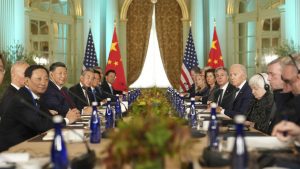 My colleague, Michael Swaine, now a Senior Research Fellow at the Quincy Institute for Responsible Statecraft, has produced two very insightful pieces on US-China relations. The longer piece can be found as a
My colleague, Michael Swaine, now a Senior Research Fellow at the Quincy Institute for Responsible Statecraft, has produced two very insightful pieces on US-China relations. The longer piece can be found as a 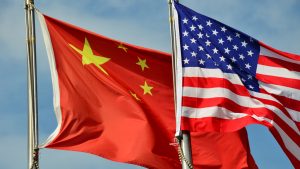 This week I, and just about everybody else holding some interest in sport, or at least in innovative commercials were distracted by the events leading up to, and including, the 58th Super Bowl. Notwithstanding the quickening approach of this Super Bowl Sunday, however, I was drawn to an examination by a number of experts for the Brookings Institution of the US-China relationship.
This week I, and just about everybody else holding some interest in sport, or at least in innovative commercials were distracted by the events leading up to, and including, the 58th Super Bowl. Notwithstanding the quickening approach of this Super Bowl Sunday, however, I was drawn to an examination by a number of experts for the Brookings Institution of the US-China relationship.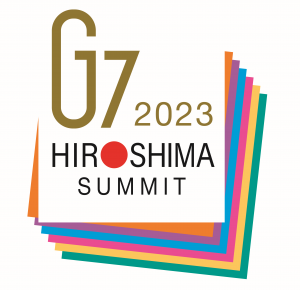 Yup, a little late in the weekend it is. But then for some Monday is a holiday. Mea culpa, but I was deep into completing a draft chapter for a yet to appear volume – which, in fact is scheduled to be released by 2025. The publication year, by the way, is important. My chapter will be part of a planned edited volume by Edward Elgar Publishing. There will be many chapters, so I am told, that will review and analyze the G7. It will do so on the 50th anniversary of the initiation of the G7 Leaders Summit. Yup, Rambouillet, the acknowledged first G7 Leaders Summit – it was actually, the G6 – France, Germany, Italy, Japan, UK, US at that moment in time – met in 1975. All the chapters, I suspect, will cover aspects of this ‘First Informal’, the G7, and, I suspect, the other Informals as well – that is the G20 and the BRICS.
Yup, a little late in the weekend it is. But then for some Monday is a holiday. Mea culpa, but I was deep into completing a draft chapter for a yet to appear volume – which, in fact is scheduled to be released by 2025. The publication year, by the way, is important. My chapter will be part of a planned edited volume by Edward Elgar Publishing. There will be many chapters, so I am told, that will review and analyze the G7. It will do so on the 50th anniversary of the initiation of the G7 Leaders Summit. Yup, Rambouillet, the acknowledged first G7 Leaders Summit – it was actually, the G6 – France, Germany, Italy, Japan, UK, US at that moment in time – met in 1975. All the chapters, I suspect, will cover aspects of this ‘First Informal’, the G7, and, I suspect, the other Informals as well – that is the G20 and the BRICS.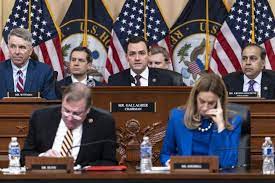
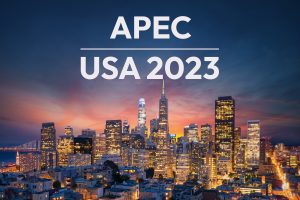 Doing some quick catch up on the APEC Summit that was held between November 11th and 17th in San Francisco. The main event, as it turned out, was the much discussed bilateral summit between China’s Xi Jinping and US President Joe Biden. While the Indo-Pacific Economic Framework for Prosperity (IPEF) meetings to receive some attention – more for what didn’t happen than what was secured – the APEC gathering activity was dominated by US-China Bilateral Summit and there was some attention paid to the other bilateral Summit of note that between President Xi and the Japanese Prime Minister Fumio Kishida.
Doing some quick catch up on the APEC Summit that was held between November 11th and 17th in San Francisco. The main event, as it turned out, was the much discussed bilateral summit between China’s Xi Jinping and US President Joe Biden. While the Indo-Pacific Economic Framework for Prosperity (IPEF) meetings to receive some attention – more for what didn’t happen than what was secured – the APEC gathering activity was dominated by US-China Bilateral Summit and there was some attention paid to the other bilateral Summit of note that between President Xi and the Japanese Prime Minister Fumio Kishida. We are definitely in the midst of Global Summitry gatherings. With the BRICS Summit just recently ended, we are deep into the G20 weekend gathering in New Delhi. So much commentary has accompanied these summitry gatherings. But I caution casual observers and readers: there are way too many assessments and conclusions drawn by all those folks that unfortunately barely pay attention to Global Summitry through much of the year. You can see this in the various ‘hair on fire’ commentaries in the assessments and consequences of the actions of key players in both the BRICS and now especially with the G20. Too many declarations of the G20 demise; firm conclusions that China and Russia would block any consensus statement that sought to condemn Russia’s aggression against Ukraine; the fragmentation of global summitry with the rise of the BRICS plus and the demise of the G20 with leaders from Russia and China choosing to absent themselves from summit.
We are definitely in the midst of Global Summitry gatherings. With the BRICS Summit just recently ended, we are deep into the G20 weekend gathering in New Delhi. So much commentary has accompanied these summitry gatherings. But I caution casual observers and readers: there are way too many assessments and conclusions drawn by all those folks that unfortunately barely pay attention to Global Summitry through much of the year. You can see this in the various ‘hair on fire’ commentaries in the assessments and consequences of the actions of key players in both the BRICS and now especially with the G20. Too many declarations of the G20 demise; firm conclusions that China and Russia would block any consensus statement that sought to condemn Russia’s aggression against Ukraine; the fragmentation of global summitry with the rise of the BRICS plus and the demise of the G20 with leaders from Russia and China choosing to absent themselves from summit.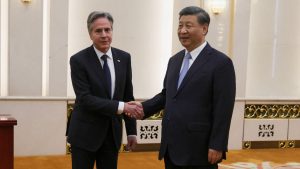 Current diplomatic activity, especially recent visits by senior U.S. officials to China underline the still difficult relations among the major powers. William Burns, the current CIA head, earlier this month described the more tense relations among the major states in international relations in the annual
Current diplomatic activity, especially recent visits by senior U.S. officials to China underline the still difficult relations among the major powers. William Burns, the current CIA head, earlier this month described the more tense relations among the major states in international relations in the annual  So, the International Studies Association (ISA) just concluded in Montreal
So, the International Studies Association (ISA) just concluded in Montreal